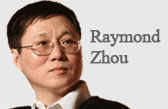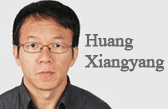For a moderately well-off society
By Mike Bastin (China Daily) Updated: 2012-11-14 08:17Instead, the Chinese government should take urgent measures to ensure that every Chinese enjoys economic opportunity. And its measure could be concerted action to guarantee decent healthcare and education for all. A xiaokang society can only be established if most people, if not all, do not have to do with sub-standard or at times no healthcare and their children have access to good education.
The government's first step toward establishing some sort of xiaokang society should be to establish a sound health service for all. Economic opportunity for all and social harmony cannot be realized without establishing a national health service funded by tax revenue and eradication of corruption.
The United Kingdom has been providing universal healthcare service for more than 60 years. In most of the UK's hospitals the first thing you see are professional doctors and nurses. However, in many Chinese hospitals the first thing you see are cash counters and medical bills. Of course, the Chinese doctors and nurses shouldn't be blamed, because the majority of them are conscientious and do their best to help the patients. Besides, medical bills are very high, exorbitant in many cases because for hospitals, healthcare is a source of profit, not social service.
While doctors are underpaid compared with the highly demanding and exhausting work they do, patients have to wait in long queues for treatment and can talk to the doctors only for a few minutes to be charged high fees. Little wonder, the patient-doctor relationship has been worsening over the years.
This calls for the authorities to pump in more public funds into the healthcare system and expedite its reform.
The education system in China, too, requires urgent reform, not dissimilar to that of the health service. Guaranteeing economic opportunity for all depends on making education accessible and affordable for all. Yet again money talks best when it comes to providing good education, thereby leaving the low-income groups disadvantaged.
Chinese parents put great emphasis on the importance of education but many of them are left with very poor options for their children for the lack of money.
An education system largely funded with tax revenue is again the answer here - with higher investment levels in poorer areas to give students everywhere similar standards of education.
The high cost of education will hinder China's progress toward a xiaokang society. Even with tax cuts and higher disposable income, an increasing number of lower-income groups are finding it difficult to climb up the economic ladder toward the middle class.
Along with the growing middle class in China, we see a greater polarization of wealth with a handful of people becoming disproportionately rich while the majority sees little improvement in their living standards.
The practical measures the government could take to create a growing middle class should include shifting from the reliance on market mechanisms in healthcare and education.
So it's time China built a health service and education system on the principles of socialism with Chinese characteristics to make concrete progress toward a xiaokang society.
The author is a researcher at Nottingham University's School of Contemporary Chinese Studies.
(China Daily 11/14/2012 page10)

I’ve lived in China for quite a considerable time including my graduate school years, travelled and worked in a few cities and still choose my destination taking into consideration the density of smog or PM2.5 particulate matter in the region.











